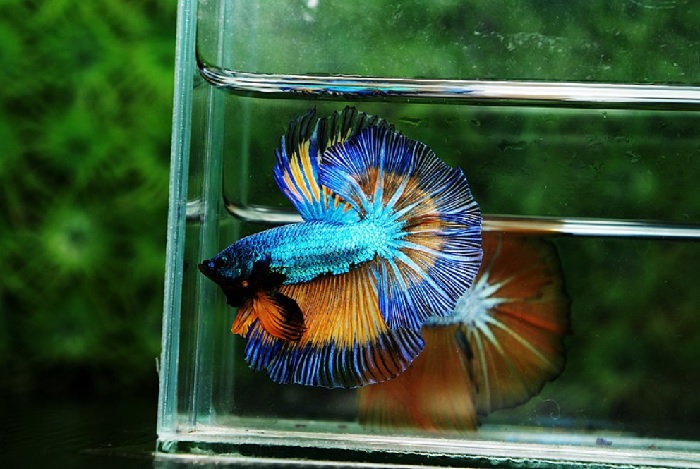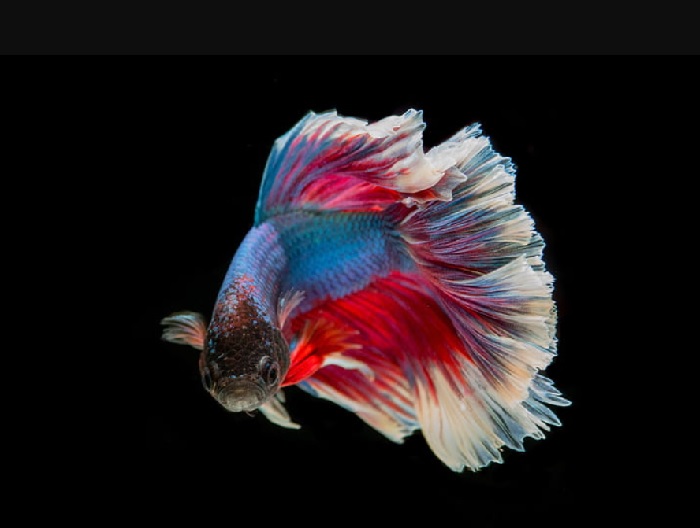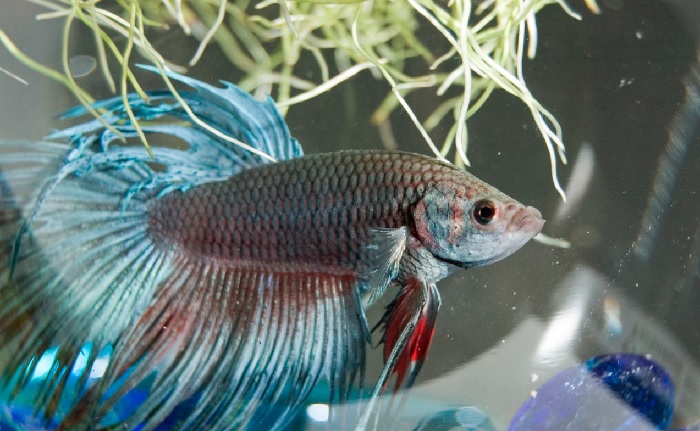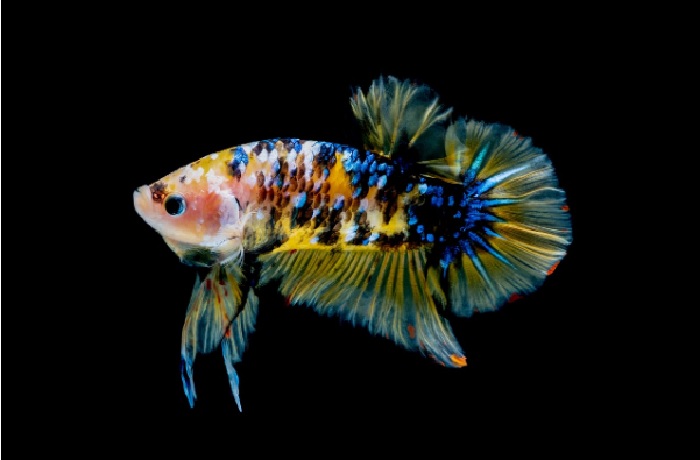How long can a betta fish go without water change? That is a common question of betta fish lovers as the beautiful fish requires thorough care and periodic water change.
Here are all the ins and outs of how often you should perform this task for the betta fish and some notes about all the factors that affect their environments that fish keepers need to consider.
Without further ado, let’s get started!

Contents
How Long Can A Betta Fish Go Without Water Change?
From 1 to 2 days to 4 weeks, depending on different tank sizes, betta fish size, and the surrounding environment.
Tropical fish like betta can survive for 3 to 4 weeks without a water change, provided their tank is big. In addition, inside the tank must have plants and good filtration. They can live alone there.
In other situations where they live in a small bowl smaller than 10 gallons, you should increase the frequency – 2 days, tops.
In short, to be able to exist and live without a water change, they will need an excellent filter, appropriate feeding schedules, and care from the owner.
Bettas are slightly more resistant to environmental toxins accumulation and other problems than most aquatic pets. It does not mean that fish keepers should leave them like that.
High nitrate levels & ammonia that are potentially poisonous build up as a result of rotting food & excretion. To grow, your pets require fresh water.

Factors Affect The Frequency To Change Water
Tank Size
The time the betta can be fine between water changes mostly depends on the tank’s size.
The bigger the betta tank fish you own, the higher the chance your pet can survive. The more water you have for their home, the less dilution will be concentrated. Therefore, they have more oxygen to breathe.
Betta fish in small tanks or fish bowls will only last 1 week or 1.5 weeks without the need to change the water. In bigger aquariums, their resistance extends to 2, 3, or 4 weeks.
Filter
A filter will help decrease the accumulation of dissolved organic carbon and add oxygen to the system. And the betta fish have more oxygen and can breathe more freely.
Without the filter, fish keepers must deduct around 7 days from your predictions of the pet’s potential to survive in the unchanged water.
The Number Of Fish
If they live alone, all oxygen is theirs. However, when there are other roommate dwellers, your betta must share the oxygen, and soon they will face the oxygen deficit.
Excrement & Food
In fact, the betta can discard extra food if fish owners overfeed them. They will also generate waste. Both cause ammonia to accumulate, and your pet will suffer a great deal from this.
Thankfully, the tank’s microorganisms can absorb this ammonia. After that, the body of these microorganisms will break the ammonia into nitrate, a less hazardous chemical. Still, if the amount of nitrate is too excessive, your pet is prone to diseases after about 7 days, which can lead to death.

How To Change Water For Betta Fish Properly?
A filtration tank’s water should be changed once every week. Aquarists should renew at least 10% of it.
In contrast, if your betta fish live in an unfiltered tank, 30% to 50% is the amount of water you should replace every 7 days. Here we share with you how to do the water change properly for betta fish using a partial change method.
Prepare The Freshwater
You need a clean and big container. Fill it with fresh water and add the water conditioner. It is crucial because the water conditioner can eliminate dangerous chemicals like chlorine from the new water.
Pet supply businesses sell water conditioners. Ensure you adhere to the recommendations for adding them to the container.
Warm Up The Water You Just Prepared
You need to ensure the water in the container is appropriate to the tank’s water temperature to avoid thermal shock for your pet.
Just let the water stay in the container, and it will reach room temperature after 1 hour. Or you can mix the cold and hot water to get the ideal temp quicker.
Either way, don’t forget to use an aquarium thermometer to double-check. When finished, pour in the recommended water amount.
Take Out The Tank’s Water
Take some water out of the tank to add the new water. You should use the measuring tools to remove about 25% of the water in the tank. You don’t need to take the betta fish out.
Refill The New Water
Start to add the treated water into the tank. Make sure that you compensate for the amount you take out. Pour the water slowly to avoid disturbing your pet.
And you have done it.

FAQs
Can I Use Tap Water To Fill The Betta Tank?
Yes. You can use tap water to fill the betta tank, given that you eliminate the heavy metals, chloramines, and chlorine.
In general, tap water is dependable because it is a consistent and inexpensive source of water. Its mineral content & pH levels are often adequate for your betta pet.
However, as we just mentioned, you must go through a thorough process to ensure the tap water does not cause any harm to your pet. When you don’t handle it well, particles and contaminants can make your betta sick.
Does Betta Fish Like Dirty Water?
No. Betta fish originate in murky natural water. Muddy water is not always “filthy,” though. Even though bettas can breathe air, they cannot live within their excrement.
In a detailed manner, bettas are native to tannin-rich waterways thanks to plants like Indian Almond. Although the water becomes discolored and appears dark and muddy, it is in no way “unclean.”
Your tank water becomes contaminated due to nitrite and ammonia. They are not the same as in their natural water source. Even though the tank is clear, your betta can still die from excessive ammonia levels. That is the reason the betta requires frequent water changes.
Can I Use Bottled Water for My Tank?
Yes, if you know how to treat bottled water before putting it in the fish tank. You need to ensure the pH levels are the same or at least not affect the fish. Besides, fish owners need to be sure the conditions are right beforehand.
Conclusion
Now the question of how long can a betta fish go without water change can not be a riddle for you. Clean water will be the priority to keep them alive and make illnesses stay away from them.
True love and proper care will surely give your betta fish a healthy and long life!

